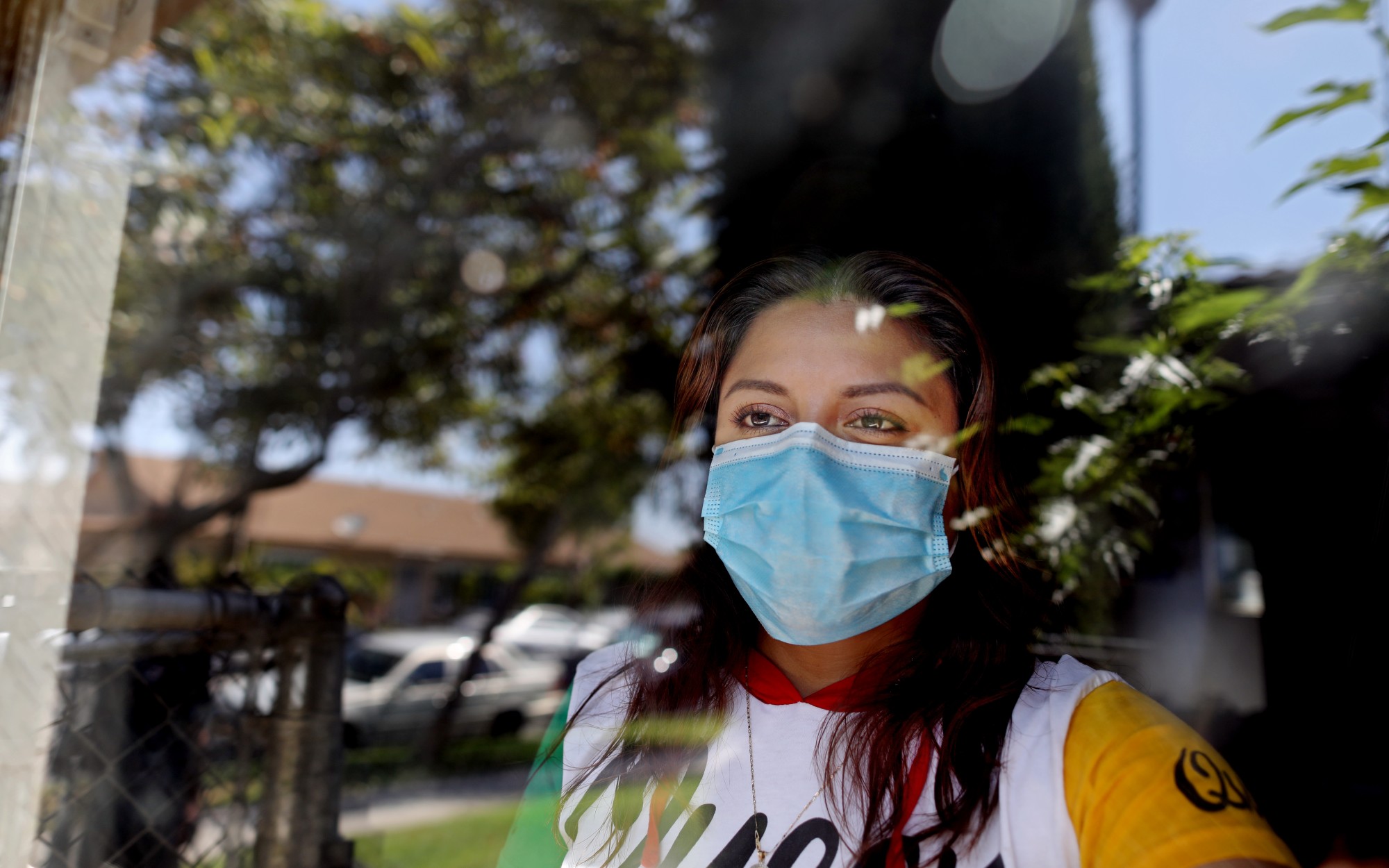Inclusion of Mixed-Status Families in the Next Federal Stimulus Relief is Key to Illinois Overcoming COVID-19
The HEROES Act could ensure stimulus checks and other essential relief for all individuals, including mixed-status familes. We can't afford to fail these families again.
By Sarah Cartagena, Immigration Analyst, and Fanny López Benítez, Civic Engagement Manager

 The exclusion of undocumented workers and their families from stimulus relief in the CARES Act has been detrimental to the recovery of our nation’s health and economy. Illinois lost $706 million in federal stimulus relief because of the categorical exclusion of these mixed-status families (i.e. families with at least one undocumented member).
The exclusion of undocumented workers and their families from stimulus relief in the CARES Act has been detrimental to the recovery of our nation’s health and economy. Illinois lost $706 million in federal stimulus relief because of the categorical exclusion of these mixed-status families (i.e. families with at least one undocumented member).
That lost money would have helped stimulate the Illinois economy and keep families in their homes. While Illinois has provided some assistance to these community members, we need the federal government to step up to the plate and do the same.
The COVID-19 pandemic has taken a significant economic toll on the Latino community. According to the latest July 2020 U.S Census Bureau Household Pulse Survey, 66 percent of Latinos in Illinois report a loss of employment income since the start of the pandemic, and 51 percent are expecting a loss of employment income in the next four weeks. Forty-three percent of Latinos in Illinois report they have little to no confidence they will be able to pay rent for August, and 30 percent of Latino homeowners say that they do not believe they will be able to pay their mortgage. According to the Latino Decisions Survey, 58 percent of Latino respondents in Illinois experienced job loss or pay cuts.
The pandemic's effects have been even more devastating on the 440,000 undocumented immigrants living in Illinois, of whom approximately 70 percent are Latino and 55 percent are living below the 200-percent federal poverty level. An estimated 70 percent of undocumented workers in Illinois* are employed in essential infrastructure positions, such as health care workers, home aides, farmworkers, and food processors.

Photo credit: Gary Coronado, Los Angeles Times
Despite being paid low wages that render them barely able to make ends meet, these workers are courageously risking their health and that of their families while keeping our economy and society functioning as the pandemic continues to devastate. Many would argue that they are the backbone of our communities. Still, they have not received unemployment benefits or CARES Act stimulus checks.**
In addition, because of their immigration status, they are vulnerable to job loss or pay cuts, and they are often excluded from rental assistance, federal public housing benefits, and other safety net programs. Consequently, they are at an even higher risk of losing their homes compared to documented workers. This is particularly alarming because stable housing is a necessary condition to contain the spread of COVID-19.
As Congress deliberates the next federal stimulus bill, undocumented workers and their families are once again at risk of being intentionally left out of critical federal assistance.
One way we can meaningfully thank our front-line workers—those who protect us in the healthcare field; take care of our loved ones; and make, package, and deliver our food—is to include them in federal stimulus relief. As contributing members of society and taxpayers who in 2017 alone paid more than $760M in state and local taxes, undocumented workers and their families should not again be excluded from the next stimulus bill. ¡Ya basta!
The Forum supports the relief provided in the HEROES Act, which ensures:
- $1,200 federal stimulus check for all individuals (including ITIN filers) and retroactive $1,200 CARES Act stimulus check for members of mixed-status families
- $200 billion to provide hazard pay for ALL essential workers
- Protection from deportation and employment authorization for essential workers during the pandemic
- A moratorium on rent and eviction until March 27, 2021
- $175 billion in new support for renters and homeowners including $100 billion in rent and mortgage and utility-payment assistance
COVID-19 has accentuated the pervasive, systemic inequities in our country, injustices we can no longer afford to ignore. By not providing a form of relief, we are penalizing dedicated workers who continue to contribute to the economy—not to mention their children and spouses, many of whom are U.S citizens or legal residents. Our chances of collectively overcoming COVID-19 depend on ensuring that everyone stays safe and healthy during and after this pandemic, especially the most vulnerable members of society.
* This number was calculated using Migration Policy Institute (MPI), which reports that there are roughly 340,000 undocumented individuals in the labor force in Illinois (2017), and Center for Migration Studies, which reports that there are roughly 244,000 undocumented essential workers in Illinois (2020).
** The Forum has conducted analysis and made recommendations for providing cash and rental assistance to immigrant households in Illinois. To learn more on cash assistance for those not eligible for federal relief, click here. To learn more on rental assistance for those not eligible for federal relief, click here.
For questions or additional information, please contact Sarah Cartagena, Immigration Analyst, at scartagena@latinopolicyforum.org, or Fanny López Benítez, Civic Engagement Manager, at flopezbenitez@latinopolicyforum.org.
